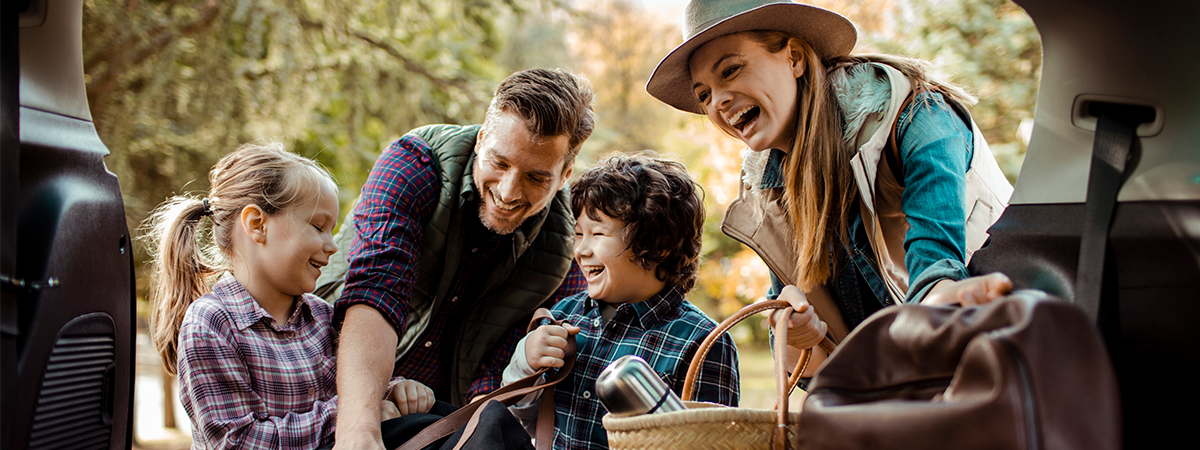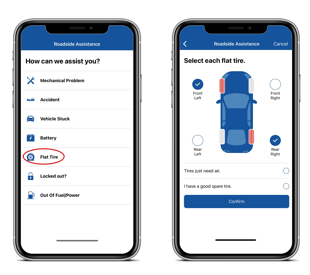
While many Canadians are focused on winter car safety (and rightfully so), it is also important to consider the effects that the unpredictable summer weather can have on your car and YOU. Heat can not only cause detrimental damage to our vehicles, but it can also be dangerous to individuals stuck on the side of the road for prolonged periods of time. Warm weather can cause dehydration, heat exhaustion, and hunger. It is important as we navigate the summer months that our cars are well equipped with everything that we may need in an emergency so that we can all continue to enjoy our summer adventures and road trips safely!
Read below for our list of the top items you should keep in your car during the summer months.
First Aid Kit
A comprehensive first aid kit is a must. Your kit should include bandages, instant ice and heat packs, scissors, gauze, adhesive tape, pain relievers, and a topical antiseptic cream. Be sure to also include personal prescriptions if necessary.
Tool Kit
A small tool kit is one of the many things you should have in your car year round. Include an adjustable wrench, some duct tape, a couple screwdrivers and pliers—you never know when a simple tool might help to get you back on the road.
Blanket
As much as we all love sun, it does have its dangers. You may not need the blanket to stay warm, but you can use a reflective emergency blanket for shade. If you don’t have a reflective blanket, the blanket from your winter emergency car kit will work to keep you cool from the blistering sun.
Phone Charger
Emergencies can happen at any time during the year and a phone charger is something that you should always have on hand. The summer heat can cause your phone to heat up and also burn through its battery life faster. The last thing you need when stranded is for your phone to die. Keep a spare charger in the car, but don’t use it to charge your phone regularly. For starters, the USB port in your vehicle probably provides less electricity than your phone really needs to charge. As a result, your phone might stall while it charges, or barely charge at all.
Flashlight
Car trouble doesn’t work on 9 AM – 5 PM schedule. In fact, many car emergencies occur in the dark hours of the night. Flashlights are one thing everyone should own and it’s smart to keep one in your car. An LED flashlight is a good option since the batteries and the bulb will last a long time.
First Aid Kit
We all know accidents happen. It could be anything from getting a papercut on your roadmap to jamming your finger in the car door (ouch). Having a first aid kit on-hand can help you get back to where you’re going in a pinch. Include some ointment, gauze, bandages, adhesive tape and tweezers. For those with life-threatening allergies, include an EpiPen.
Tire Sealant and Gauge
Without snow on the roads, our tires become more vulnerable to punctures from glass, nails, etc. When your tire experiences a puncture, apply sealant. It will move quickly to the hole to create a seal so that it does not lose any air while you drive. If it’s a bad enough hole, the sealant will make sure that the air escapes slowly so that you can control the vehicle and move safely to the roadside to safely change the tire.
Jumper Cables
Jumper cables can come in handy throughout the year, not just during the winter months, and should be part of any vehicle emergency kit. Before using, make sure you know how to boost a car safely.
Snacks
Being stuck on the side of the road for a prolonged period can cause hunger to strike and to ultimately lead to increased stress and anxiety levels. Keep some snacks that won’t melt or perish, such as granola, dried fruit and nuts in your car emergency kit.
Water
Hydration is key when it comes to staying healthy during the summer months, so be sure to keep water in your vehicle at all times. Dehydration, like hunger, can also lead to increased anxiety levels and stress when in strenuous circumstances. If you’re planning a road trip, plan on bringing one gallon of water per person.
Sunscreen
Much like hunger and thirst, your skin can al
so suffer from prolonged sun exposure inside or outside of a vehicle. Purchase a couple sunscreen sticks to keep in your glove compartment or your first aid kit for times when you’re stuck in the sun.
CAA Membership Card or CAA Mobile App
Most importantly, make sure to pack your CAA Membership card - whether it's in your wallet or on your phone. Members can request roadside assistance online, by calling 1-800-263-3616, or through the CAA Mobile app. Using the Mobile app allows Members to track the status of their call in real-time, and allows Members to cancel a service request with the simple tap of a button.



 Ontario
Ontario